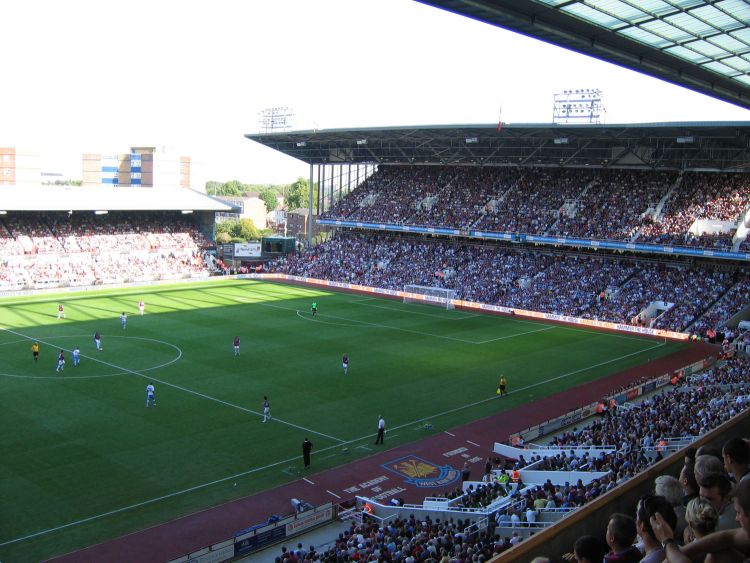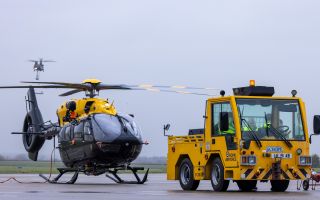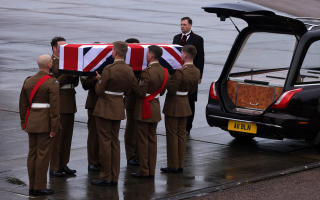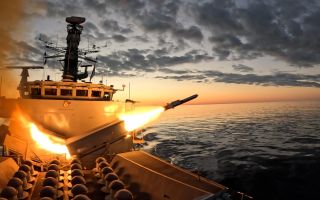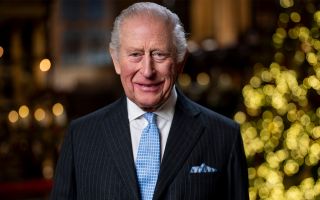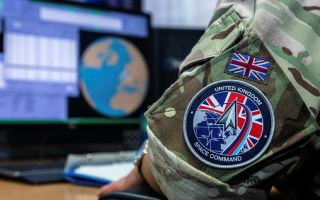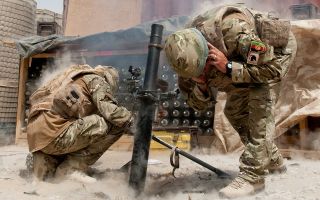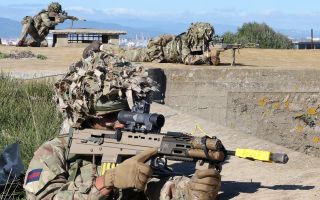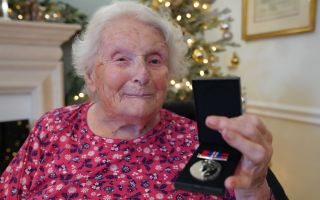Navy
Former Royal Marine Now Preparing Footballers With Military Precision
A former Royal Marine is using skills he picked up in the forces to gear up the new men under his command for the challenge ahead - a season in the Football League.
Dave Robertson was named Peterborough manager in May, after a successful period as caretaker following the sacking of Darren Ferguson.
But unlike many in the football world, Robertson's career trajectory wasn't a straightforward one.
Having grown up as a West Ham fan in Dagenham, East London, football was his first love.
He played in Dagenham United's youth team, and had trials at a number of top clubs in London, but by the age of 16 hadn't been offered a contract.
So he did what his father and grandfather had done before him - and signed up for the Royal Marines.
But he didn't let joining the forces stop him following his sporting passion, and established himself as a key footballer for the Royal Navy and Royal Marines.
Steve Johnson, of the Royal Navy FA, who played with Robertson during their time in the Senior Service, told Forces TV about his combative playing style:
"He was a tigerish midfield player who loved a tackle.
"He wasn't gifted with a great deal of technical ability, but was the kind of player you wanted in the trenches alongside you!"
Robertson would have happily remained a commando until the mandatory retirement age of 40, if it hadn't been for a viral infection he contracted whilst in his mid-twenties.
It caused minor damage to Robertson's heart, resulting in him having a pacemaker fitted - but he returned to service, even being named Marines’ footballer of the year in 1996.
"Having a pacemaker was quite unique in those times," Johnson explained. "It didn't affect him physically though.
"It was the size of a matchbox under his skin - he was quite happy to show people."
The pacemaker did ultimately lead to Robertson's medical discharge in 1998.
“I’ll never forget the day,” he told the Guardian.
“I was just about to go out for a 15-mile yomp with one of my mates and I got a phone call off the medical officer from 45 Commando.
"He said: ‘Marine Robertson, whatever you do, don’t do any physical exercise. You’re booked in to have a pacemaker fitted at Dundee Royal infirmary.’
"I have no shame whatsoever in admitting that I was knocked for six. I didn’t even know what a pacemaker was, all I knew was that I was going to have heart surgery."
“It didn’t affect me physically but I couldn’t go on a warship and with all the electronic countermeasures they have now on every battlefield, my days of active service were unfortunately over.
"So I went to a medical board and got medically discharged. It was unfortunate but maybe now, from down the line, it was a blessing in disguise.”
During his military career, he had served in Northern Ireland and also Kuwait towards the end of the first Gulf War, as well as completing arctic warfare training in Norway and jungle training in Guyana after earning the coveted green beret.
Jungle training from a soldier's perspective:
After Robertson's discharge, as ever in his career, when one door closed, another opened.
During his time with the Marines, he'd undertaken a week's coaching course in Portsmouth.
From that point onwards he was hooked, and after leaving the forces he joined Peterborough for his first coaching job: his journey to managing the side had begun.
When asked what his most gruelling experience in a green beret has been, Robertson said:
“Of all the theatres of war that I worked in, I didn’t like the desert because there was no cover, there was sand everywhere and I thought it was quite a tough environment to work in.”
“That was in Kuwait, where we did a lot of training with Kuwaiti commandos near the airport just after it had been bombed.
"But I really thrived in Norway when we did our Arctic warfare training, I would say that’s the fittest, strongest and the best condition I’ve ever been in."
"Natural skiing with a 120lb (54kg) pack and four-man tent, Monday to Saturday, week in, week out. Going above the treeline and then coming back down.
"Unfortunately we lost a few guys on that exercise... They passed away because of the intensity of the training and the environment.”
Robertson undertook Arctic warfare training during his time in the Marines:
But Robertson's in no doubt how much his experiences as a Marine helped him get into the position he's in today.
"When I was in the Marines I was a leader of men - I think there are lots of attributes that can be called into play when leading a team out," he told the BBC.
"It helped me formulate my own leadership and management strategies and how I deal with people."
Cover photo courtesy of Dave Robertson.
